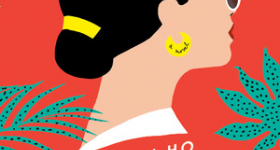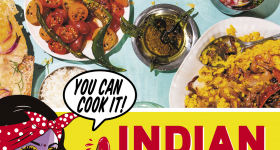It’s been more than a decade since I lived in Cerritos, California, the Los Angeles suburb where I grew up alongside countless other children of diaspora. As we near the holiday season, my mind naturally gravitates toward “home” and missing the particular closeness — and claustrophobia — that I associate with that place and stage of life. I recently returned to Anthony Veasna So’s short story collection, Afterparties, seeking some form of solace and familiarity.
What does it mean to be American? What does it mean to be Cambodian? The idea of trying to pin identity to any singular trait is an impossible task; So’s debut, Afterparties, instead leans into the complexity of both these questions by revealing just how much our identities rely on our particular web of imperfect relationships. Remove any element of that web — the overbearing aunties or the quick-witted cousins, the would-be badminton pro or the mysterious, deviant monks — and we become smaller, flatter versions of ourselves. In other words, being part of the diaspora means we are never just one, for better or for worse: We are always a multidimensional amalgamation of our family’s, and community’s, traumas and joys.
The stories in Afterparties take place decades after the 1975 Khmer Rouge genocide, set in the “valley of dust and pollen and California smog” that defines one Cambodian American community — presumably So’s own hometown of Stockton, California, though the exact location is never outright named. So’s characters are all suffering from a stifling mixture of intergenerational trauma, boredom and general malaise, trying to maneuver through the slog of daily living to claim a small slice of the American Dream. His characters are at times pompous, disloyal, angry and uncaring — but you still find yourself rooting for them. They’re cool in that too-cool-for-school kind of way, reckoning with their own internal turmoil and sometimes wreaking havoc along the way.
But they are also, importantly, justified in their shortcomings because of the atrocities their ancestors endured and the ways they still shoulder that pain. The genocide is always looming in So’s stories, as integrated into the fabric of his characters’ lives as the physical reality of their daily routines. Its ever-presence is a reminder to readers that the trauma of that time period — in which anywhere between 1.5 to 3 million people were killed by the Khmer Rouge — has inevitably seeped into the culture and the language of the diaspora. Or, as one of So’s protagonists notes in “Superking Son Scores Again,” he and his peers are endlessly tussling with that “pent-up refugee shit,” regardless of whether or not they themselves are refugees. It’s an unavoidable history, even as subsequent generations struggle to free themselves from the sadness and guilt that it demands.
“Cambodians, we never let ourselves enjoy life,” one character says in “We Would’ve Been Princes!” “It is always thinking about the past, worrying about the future.” But in So’s fictional world, he dares to depict a different parallel reality. The long shadow of the genocide notwithstanding, there is a whole lot of living, too, oftentimes in defiance of its enduring legacy. Or at the very least, a lot of attempts at living. Because while yes, So’s characters are constantly hustling to make ends meet — as in the the family-owned businesses in “Three Women of Chuck’s Donuts” or “The Shop” — in other stories, like “Maly, Maly, Maly” and “We Would’ve Been Princes!” they’re also partying, getting high and having lots of sex with the understanding that there must be more to life than just eddying in a liminal state.
Each story drops the reader straight into the middle of a scene without explanation or context, and this is also a kind of defiance. Come be a voyeur, So seems to say, but don’t forget to take off your shoes. There’s no catering to the white gaze, no characters writhing helplessly, expecting to be saved. There is electricity in his stories, an energy that doesn’t ask permission so much as it just takes up space. And by allowing his characters to be messy, emotional and just a little bit haunted, he is reclaiming the complexity of words like “diaspora” and “refugee” and “survivor.” In “Superking Son Scores Again,” for instance, So’s narrator refers to the titular character as “an artist lost in the politics of normal, assimilated life,” a hero in the eyes of young Cambo kids rather than what society might define him as: a refugee, an outsider, a “goddamn grocery-store boy.”
So digs into the depths of what it might mean to inhabit different relationships to these terms by jumping freely between generations and collapsing time within a single sentence. “Tevy wonders if her mother has ever loved someone romantically, if her mother is even capable of reaching beyond the realm of survival, if her mother has ever been granted any freedom from worry, and if her mother’s present carries the ability to dilate, for even a brief moment, into its own plane of suspended existence, separate from past or future,” So writes in the first story of the collection, “Three Women of Chuck’s Donuts.” It’s an impactful way of showing how kaleidoscopic the diasporic experience really is, even within the same extended family.
This is the thesis of So’s wide-ranging collection: we can only know ourselves through our community. The idea of the web is woven throughout; community is self-knowledge and vice-versa — they are intertwined; they are not dichotomous. Part of laying out the unknowable elements of a different generation is also admitting that gaps will always exist. When one part of the web is missing, we’ll spend a lifetime trying to fill that gap — with narrative, with sex, with drink, with a longing for elsewhere. So’s own untimely death in December 2020 feels like an extension and even an ode to that fact. Perhaps the elsewhere he sought was in rebirth, a way to enter a new generation and to continue his search for belonging in a different time. Reincarnation, after all, is a central Buddhist belief, and one that appears in various forms throughout the collection.
The implied message here is one of hope: that even in “the busted potential of [a] small city’s downtown,” there is always the possibility of a different ending, a new beginning. In “Human Development,” So’s protagonist describes his Grindr date as someone who makes him feel good “in ways both tender and ugly.” This is also, arguably, an apt way to describe So’s Afterparties. Because even in the most unsavory of scenarios, So’s characters manage to find the humor, the joy and the camaraderie that make life worth living — it’s the web that keeps them afloat in the end.










Comments